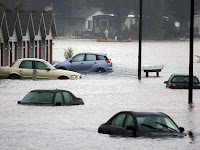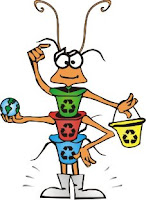
This trailer gives us an idea about the environmental problems that are occurring now and what will happen if we don't do nothing about it.
Este blog tem como finalidade um trabalho para a disciplina de Inglês, portanto os assuntos aqui referidos podem não estar totalmente correctos. This blog is intended to work for the discipline of English, so the affairs listed here may not be entirely correct.





- Tsunamis.jpg)
- Typhoons
- Floods
Natural Catastrophes are growing with climate change and if we don't do all we can to take care of mother Earth like it did with us for all these years, the nature most destructive force will ensure the disappearence of many earthling lifes and respectives habitats.
It's time to act, don't wait for tomorrow because there may be no tomorrow! Mother Earth is counting on us!
Curiosity:
Difference between Typhoons and Hurricanes: Although both are destructive nature forces driven by the wind, Typhoons come from the oceans, while Hurricanes are generated on the soil.



